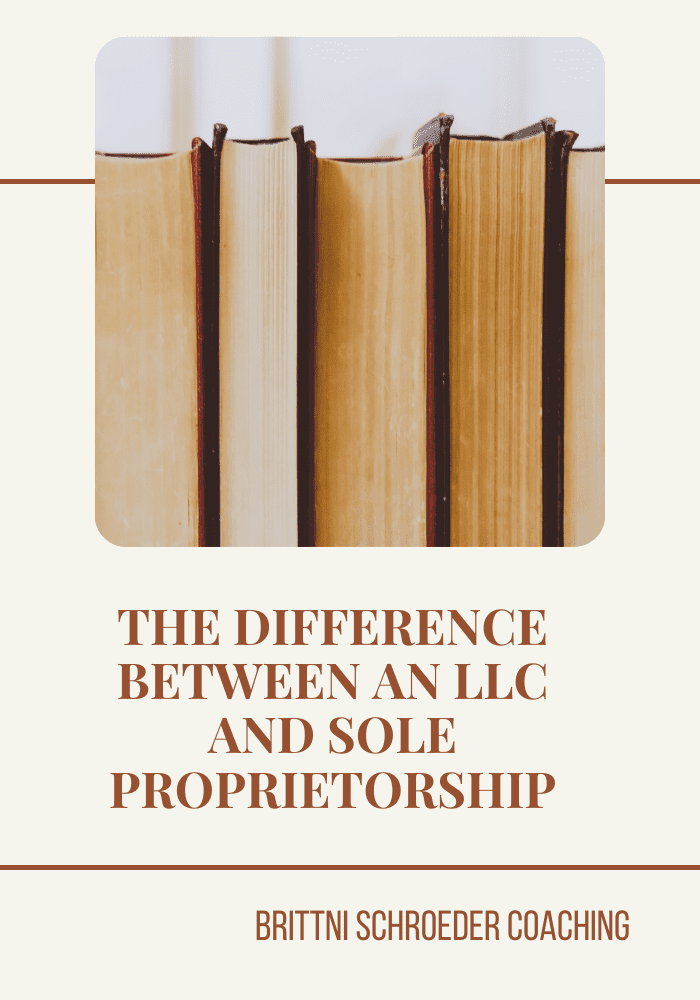brittni schroeder
BLOG
Brittni Schroeder Coaching
THE DIFFERENCE BETWEEN AN LLC AND SOLE PROPRIETORSHIP

You are super excited about starting a new business. You have a great idea and know it will be successful. At some point you realize there are certain steps you must take in order to protect your business and yourself. You understand you need an attorney to protect your business, but maybe hazy on the best way to proceed.
What are the main differences between an LLC and a Sole Proprietorship? What are the benefits of each? And which one is right for you?
SOLE PROPRIETORSHIP
A Sole Proprietorship is a business owned and managed by one individual, with no legal structure separate from its owner. The owner or the sole proprietor does not pay separate income taxes on the company but reports losses and profits on his/her individual tax return. With this filing, the owner remains personally liable for all debts of the business.
LIMITED LIABILITY COMPANY (LLC)
A type of business entity that offers the Limited Liability of a corporation and can choose to be taxed as either a sole proprietorship or a corporation. The owners of an LLC are referred to as “members,” whose rights and responsibilities in managing the LLC are governed by an operating agreement. An LLC can be created with only one owner/member. However, it’s important to understand that a single-member LLC offers less protection from the debts and liabilities of a business than a multi-member LLC. However, a single-member LLC provides more protection for its owner than a Sole Proprietorship.
Along with legal protection, an LLC also has potential tax benefits. If you have more than one member, you should create an operating agreement. This can be done by filing some paperwork with your state. An LLC is legally formed by the filing of a document called The Articles of Organization. This should be done with a state official, usually the Secretary of State.
No one ever thinks they are going to be sued, but unfortunately, it happens more and more these days. If you are a Sole Proprietor and someone sues your business, they might be able to get to your personal assets and vice versa—if someone sues you personally and you don’t have enough personal money to cover the expenses, they can go after your business. With an LLC, your personal assets are typically protected from creditors. Simply put, an LLC separates and protects your personal assets from your business assets and the other way around.
FUNDS
It is very important to have separate bank accounts for your business and your personal accounts. If you combine the two, it renders your LLC virtually useless and gives someone suing you a loophole.
There is so much more to learn about an LLC and a Sole Proprietorship. I highly recommend consulting an attorney and an accountant to get legal and tax perspectives. Before you decide to file, create a business plan and ensure that you will have a sustainable business. Do your own research and learn the difference between an LLC and Sole Proprietorship before you make your final decision.
